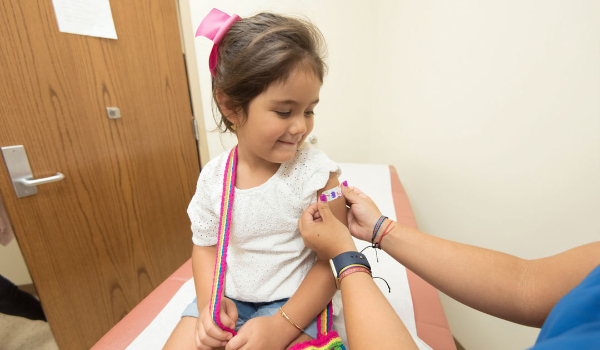Common Reasons Children Need to Visit an Urgent Care

Nothing is more overwhelming than trying to help a sick child. Whether it’s a common illness or a physical pain, when your child is hurting, it’s all you can think about. In a state of panic, it’s hard to know where to go.
Urgent care clinics often offer better benefits to kids than conventional health clinics. As compared to emergency rooms, urgent care clinics provide lesser wait times, are cost-efficient, and have a faster response time. Here are some of the common reasons children visit urgent care centers.
Ear Infections
Ear infections are very common for children and need to be dealt with before they get worse. In fact, according to the National Institutes of Health, five out of six children will experience an ear infection before their third birthday. The medical staff at an urgent care center will be able to take a look at your child’s ear and provide the necessary medicines and treatment.
Cold and Flus
We all know how miserable it is to suffer from a cold or the flu. The symptoms can range from mild to severe and can include a runny nose, congestion, coughing, and fever. Urgent care centers are no strangers to colds, cases of the flu, and other types of upper respiratory infections. It is well known that fever and common colds can quickly escalate to additional problems for children and cause critical health conditions if not checked on time.
Instead of going to an emergency room where you will probably need to wait for hours on end, an urgent care center’s medical professionals and facilities will be able to diagnose and provide treatment for your little one. If your child shows signs of a worsening cold or flu infection, immediately consult with an urgent care doctor for treatment.
Small Injuries
Your child getting injured is scary for everyone. However, not all injuries are considered an emergency but will still need proper treatment. Some common injuries children experience that are regularly treated at urgent care centers include wounds, cuts, fractures, bone breaks, ingrown toenails, whiplash and neckache, animal bites or stings, burns, and nose bleeds.
Other Types of Non-Emergency Illnesses
Children get sick often when developing their immune systems. While many of these illnesses are unpleasant, luckily they are not usually serious. Some common, non-life-threatening illnesses children experience that can be treated at urgent care centers include sore throat, bronchitis, strep throat, asthma attack, poison ivy exposure, allergic reactions, dehydration, diarrhea, nausea, food poisoning, and headaches.
Many common childhood illnesses run their course on their own or clear up with rest and medication. If you think your child needs medical care for a non-life-threatening illness, do not hesitate to visit our urgent care center. Our staff is educated and experienced in children’s illnesses. A visit to the ER can expose your already sick kid to the ubiquitous hospital germs and other infections carried by fellow ER visitors.
When You SHOULD Go to the Hospital Instead of Urgent Care
Although a trip to urgent care can be your best option for many reasons, there are some instances where a hospital is necessary and highly recommended. Some examples of when you should go to the hospital or emergency room are if your child is less than 2 months old and has a fever, your child hits their head and appears to lose consciousness, your child has a seizure, or if they have a big and gaping cut. There are a couple of other instances where an emergency room is required. As a rule, if your child is able to walk, talk, interact, and play, chances are whatever she or he has is not an emergency.
If your child has an injury or illness that is a non-emergency, an urgent care visit can provide excellent care while possibly saving you time and money. Give us a call today for more information on what services Care Station Medical Group offers. We provide fast, complete medical care and top-notch medical services for unexpected illnesses and injuries.
